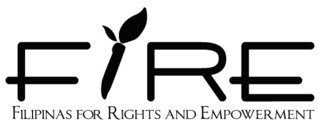NY-CHRP Human Rights News
RP Human Rights News (3)
1. Philippines: Justice Absent in Killings and ‘Disappearances’
2. RP human rights measures 'window-dressing'--HRW
3. Human Rights Watch: Take RP to task over killings
==================================================
[News compiled by the NY Committee for Human Rights in the Philippines (NYCHRP). NYCHRP recently facilitated a meeting between Philippine Human Rights advocate Edita Burgos and Elaine Pearson of Human Rights Watch.]
RP human rights measures 'window-dressing'--HRW
MANILA -- Measures introduced by the Philippine government to curb human rights abuses are mere "window-dressing," an official from Human Rights Watch said Thursday.
"The list of actions touted by the Philippine government as progress unfortunately seem little more than window-dressing," said Elaine Pearson, Asia deputy director for the New York-based rights group.
Although the government has said extra-judicial killings fell sharply last year, Pearson said a "pause in political killings will mean little in the long run unless those responsible are prosecuted."
She told reporters in Manila that the government's failure to convict military men for human rights abuses will be brought up during a review of the Philippines at the UN Human Rights Council in Geneva on April 11.
Pearson said Human Rights Watch (HRW) research showed that since 2001, there had been hundreds of cases of suspected insurgents, leftists, reporters, government critics and activists who had been murdered or had vanished, but no military man had been convicted of these crimes.
Although the government had set up a task force to investigate these incidents and had put in place measures to protect witnesses in these cases, these actions had "in fact accomplished little, and seem designed to merely deflect domestic and international criticism," Pearson added.
"Human Rights Council members should be asking the government why it hasn't taken strong action against abusive military personnel that would finally put a stop to these killings," said Pearson.
She noted that UN Special Rapporteur Philip Alston, following a visit to the Philippines in February 2007, said the military was in denial about the killings.
She said HRW had already submitted its findings to the council in Geneva and they would be taken up at the review session next month.
"The Philippines is among the first countries up for the universal periodic review, and as such it will be a test for the Human Rights Council," said Pearson.
She said the United Nations would not seek sanctions against any of the countries concerned but said the session "would help focus attention on the serious concern on the human rights problem in the Philippines."
"We hope to apply peer pressure on the Philippines," she said.##
============================================
Philippines: Justice Absent in Killings and ‘Disappearances’
Government Under Review at UN Human Rights Council
(Manila, March 27, 2008) – The United Nations should carefully review the Philippine government’s failure to hold accountable those responsible for killings and “disappearances,” Human Rights Watch said today. The first-ever Universal Periodic Review of the Philippines at the UN Human Rights Council takes place in Geneva on April 11, 2008.
Killings and enforced disappearances
Since 2001, hundreds of members of left-wing political parties, activists, journalists, and outspoken clergy have been killed or “disappeared.” The UN Special Rapporteur on Extrajudicial, Summary, or Arbitrary Executions, Philippine human rights groups, and Human Rights Watch all found strong evidence of military involvement in many of these cases.
In its submission to the UN Human Rights Council, the Philippine government claims that it places a priority on “addressing this most urgent concern [extrajudicial killings and enforced disappearances], by bringing perpetrators to justice and preventing such killings in the future. The government reported that the number of killings had dropped significantly in 2007.
“A pause in political killings will mean little in the long run unless those responsible are prosecuted,” said Elaine Pearson, deputy Asia director at Human Rights Watch. “Of the hundreds of political killings since 2001, not a single military official has been convicted.”
Human Rights Watch said that while any reduction in human rights violations is to be welcomed, the government has yet to adopt institutional changes that would address the long-term problem of extrajudicial killings and enforced disappearances in the country. The government has failed to successfully prosecute members of the security forces for serious abuses. Since 2001, only two cases of killings of activists resulted in convictions of four defendants, none of whom were military personnel. And because enforced disappearances are a continuing offense, the government remains responsible for those “disappeared” until their fate or whereabouts becomes known.
A new UN mechanism
Scrutiny of the Philippines is part of the Universal Periodic Review (UPR), a new UN mechanism used in assessing the human rights record of all United Nations member states. The Philippine government and nongovernmental organizations have made written submissions to the Human Rights Council. On April 11, in Geneva, member states will examine the human rights situation in the Philippines in a three-hour open session that will also be streamed live on the web. This is the first time the Philippine government has undergone such review, which will happen every four years.
Police, prosecution, and witness protection
In its submission, the Philippine government lists a number of specific measures it has taken to address extrajudicial killings, including implementing the findings of the government Melo commission report and Task Force Usig (Task Force Prosecution), better coordination between police, prosecution and other agencies, strengthening laws on witness protection, and new human rights offices within the armed forces and the national police.
Human Rights Watch’s research found that the speedy introduction of these measures in 2007 has in fact accomplished little, and seem designed to merely deflect domestic and international criticism. Contrary to government claims of having implemented the Melo commission report’s recommendations, the government has not followed up on the report’s finding of military responsibility for killings. And, while the government claims that 80 cases have been filed with police through the Task Force Usig, many lack crucial evidence, such as the names of the accused and other basic information necessary for prosecutors. The principle of command responsibility has yet to be applied in a single case.
Witness protection and coordination between prosecutors and police remain weak. The human rights offices of the police and the army seem more engaged in advocacy against government critics and “leftist propaganda” than in supporting concrete investigations of alleged abuses.
“The list of actions touted by the Philippine government as progress unfortunately seem little more than ‘window-dressing,’” said Pearson. “Human Rights Council members should be asking the government why it hasn’t taken strong action against abusive military personnel that would finally put a stop to these killings.”
Writ of amparo
The Supreme Court’s new procedure of the writ of amparo – a habeas corpus-like procedure in which state agencies are compelled to reveal to the court the whereabouts of named persons, disclose documentary evidence or allow court-authorized searches of premises – has shown some success in “resurfacing” more than half-a-dozen people. But some 100 cases remain pending, including that of Jonas Burgos, an agricultural activist who was abducted by alleged security forces in broad daylight in an urban mall in April 2007. While an important safeguard against government abuse, the writ of amparo is no substitute for prosecuting perpetrators of arbitrary arrest and detention.
Visit by UN expert on extrajudicial killings
In its UPR submission, the government claims that “as a concrete manifestation of the Philippines’ willingness to cooperate with the international human rights system,” it invited UN Special Rapporteur on Extrajudicial, Summary or Arbitrary Executions Philip Alston in February 2007. The government has chosen to quote only positive selections from Alston’s report, omitting, for example, his finding that the military remained in denial about the killings, and has not rejected earlier government attacks on the report, such as the high-ranking military officer who called the UN rapporteur “brainwashed.”
“It is absurd for the Philippine government to let its generals call a UN expert names and then claim his visit signifies its willingness to cooperate,” Pearson said. “Its cooperation is best measured through its willingness to adopt Alston’s recommendations.”
Continued targeting of alleged communists
The government’s UPR submission notes that the Philippines repealed the anti-subversion law and decriminalized the Communist Party of the Philippines (CPP). Although membership in the CPP has been legal since 1992, high-ranking military and police officers have repeatedly made statements to Human Rights Watch that imply that membership is illegal and which conflate the CPP with its armed wing, the New People’s Army. Some officers have also publicly suggested that members of certain nongovernmental organizations are valid targets of attack because of their alleged association or sympathy with the CPP or the New People’s Army.
Counterterrorism law
Human Rights Watch also expressed concerns that the 2007 anti-terrorism law, the Human Security Act, contained provisions that could allow authorities to hold detainees indefinitely, and engage in spurious prosecutions. The UN special rapporteur on human rights and counterterrorism called for the law to be repealed or its implementation to be delayed.
“The Philippines is among the first countries up for the Universal Periodic Review, and as such it will be a test for the Human Rights Council,” said Pearson. “If the Philippines is the rights-respecting nation it claims to be, then why, when ample evidence implicates the military in abuses, are no members of the military being tried for these crimes?”
==============================
Human Rights Watch: Take RP to task over killings
MANILA, Philippines - A human rights group urged the United Nations on Thursday to take the Philippines to task for failing to prosecute soldiers suspected of involvement in a string of extrajudicial killings.
New York-based Human Rights Watch said the Philippines has done little to implement recommendations made last year by Philip Alston, the UN special envoy on extrajudicial killings, as well as the government's own fact-finding commission.
Both have linked soldiers to hundreds of deaths and disappearances of mostly left-wing activists belonging to political organizations that the military brands as fronts for communist rebels.
"The list of actions touted by the Philippine government as progress unfortunately seems little more than 'window-dressing,'" said Elaine Pearson, Human Rights Watch's deputy director for Asia.
She told reporters that the actions seemed "designed to merely deflect ... criticism."
Philippine officials did not immediately return calls seeking comment.
The Geneva-based UN Human Rights Council will hold its first Universal Periodic Review of the Philippines' human rights record April 11, during which council members can question government representatives in a public session.
All governments are subjects to the review.
Pearson said the Philippines has reported to the council that the number of killings dropped significantly in 2007.
President Gloria Macapagal-Arroyo told foreign diplomats in January that seven activists and journalists were killed last year, compared to 41 in 2006.
The left-wing human rights group Karapatan also reported considerably fewer activists were killed or abducted last year, but gave higher figures of 68 activists slain and 26 missing, down from 185 dead and 93 missing in 2006.
Karapatan head Marie Hilao Enriquez said in a December report that the drop can be attributed to pressure from the diplomatic community and human rights groups.
The report said 887 left-wing activists and their supporters have been killed and another 185 have disappeared since Arroyo took office in 2001.
The government said it has strengthened witness protection laws, but can do little to force people to testify if they fear retribution. Without witnesses, no prosecution can move forward, it said.
Pearson said the group's research found the government measures have accomplished little.
She said perpetrators must be prosecuted and institutional changes put in place.
In the killings since Arroyo came to office in 2001, "not a single military official has been convicted," Pearson said.
She also expressed concern that some ranking military and police officers have publicly suggested that members of activist organizations are valid targets because of their alleged association with communist rebels. - AP
===============================

